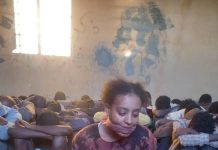South Korea’s second-largest city in the south of the country is embarking on an ambitious undertaking to establish a collaborative body to foster global cooperation and partnerships on clean air, energy and growth sustainable development as part of its bid to host the World Expo in 2030. Under its slogan “Transforming our world, sailing towards a better future”, the Busan roadmap calls for thorough coordination among participating states, inviting them to explore paths that will help chart a sustainable future for the development and prosperity of countries, proactive businesses and innovators who seek to pave the way for future generations.
Reborn from the ashes South Korea has known very well the dilemma faced by both developing and advanced countries, as it is the only country in the world that has managed to rise from the rubble of war to its status today as an economic, commercial and technological power in less than 70 years. As governments around the world debate whether to turn their backs on free trade and resort to protectionism, South Korea, especially Busan, understands the benefits of partnering with other countries to moving towards a more sustainable and prosperous future. With a rich history dating back around two millennia, Busan served as the temporary capital for South Korea for more than 1,000 days during the Korean War, housing most of the country’s refugees during a conflict. United Nations forces fought devastating battles to protect the city’s perimeter, the last line of defense in the war, to ensure the landing of supplies and reinforcements in the southeastern port city from 33 countries , of which 22 of them, including France, had sent their allied armies consisting of nearly 370,000 soldiers.
With a population of over 3.4 million, Busan is used to hosting major international events. It is home to Asia’s largest film festival, the Busan International Film Festival (BIFF), which will celebrate its 35th anniversary in 2030. The city hosted the 2002 Asian Games and was also one of the host cities of the FIFA World Cup in 2002 and the site of the ASEAN-Korea summit in 2019. Its trials and triumphs helped push the country’s economy to a nominal GDP of $1.66 billion last year , compared to 41 million just after the war in 1953. Sustainable growth The 2030 World Expo will mark a watershed moment for the international community. The year 2030 will be the 10th anniversary of the Covid-19 pandemic and both the first exhibition of its organizer, the Bureau International des Expositions (BIE), after celebrating the 100th anniversary since its founding in 1928. Busan is fully aware of the challenges facing humanity today.
As the host country of two previous expos in Daejeon in 1993 and Yeosu in 2012, South Korea has shed light on technological advancements. In contrast, the World Expo to be held in the future will most likely focus on the task of bringing countries, societies and communities together to solve some of humanity’s most difficult problems, such as reducing the economic gap between rich and poor, technological transition and climate change. Busan and South Korea have managed to turn crises into opportunities. It is true that the pandemic has wreaked havoc on our daily lives, our business sectors and the economy as a whole, however it has accelerated the country’s digital transition and streamlined communication networks, work performance and logistics. The city of Busan realizes that the goals it has set for themselves are ambitious but not impossible. It has already faced challenges in the past and is ready to take on more in the future to ensure a better, brighter and more sustainable future for future generations. The Busan World Expo 2030 Bid Committee aims to provide a vision for humanity to address some of its most significant challenges today: climate change; the digital transition; and socio-economic polarization.
“The key to achieving these seemingly audacious goals is to focus on solutions that will allow the world to take better care of each other, and the South Korean government and its private sector have joined in the effort to lead this endeavor. on their territory. Korea has overcome war, poverty and other difficult challenges to become the world’s tenth largest economy. We Koreans have succeeded in achieving this by focusing on education, innovation and global cooperation,” Prime Minister Han Duck-soo said.
“We would like to share our experience with member countries in the hope that we can help illuminate the way forward for all,” he said.
Choi Tae-won, chairman of the SK Group and co-chairman of the South Korean bid committee representing the private sector, points out that the 2030 Busan World Expo will tackle some of the world’s toughest challenges and provide countries with the opportunity to share experiences and seek solutions together. “No country can tackle climate change and other global challenges alone,” said Choi, who is also president of the Korea Chamber of Commerce and Industry (KCCI). “Only when governments, businesses and societies as a whole step up can we make a difference,” he added.





















